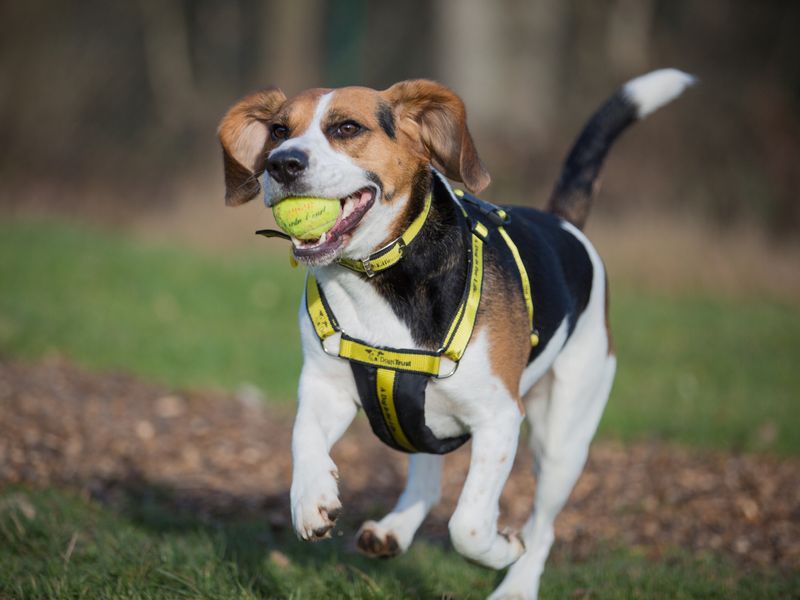
Best Collars for Aggressive Pullers: Your Essential Guide to Safer Walks
Share
As a responsible pet owner, selecting the right collar for your dog is vital, particularly when your furry friend tends to pull aggressively. The best collars for aggressive pullers not only prioritize safety but also enhance the overall walking experience for both you and your beloved companion. This detailed guide explores what characteristics make a collar suitable for aggressive pullers and provides tips on choosing the perfect one for your dog.

Why Opt for Specialized Collars?
Walking a dog that pulls with intensity can be both difficult and risky. Specialized collars are designed to manage this behavior while ensuring your pet's safety. Traditional collars can exert harmful pressure on a dog's neck, which makes choosing a collar specifically created to handle aggressive pulling essential for your dog's health.
Collar Types for Aggressive Pullers
Martingale Collars
Martingale collars are highly recommended for owners with aggressive pullers. They offer better control without causing choking, making them suitable for breeds with larger necks than their heads. This collar applies gentle pressure as your dog pulls, discouraging the behavior effectively.
No-Pull Harnesses
No-pull harnesses provide another excellent alternative. They help distribute pressure uniformly across your dog's body, alleviating strain on the neck. This design not only curbs aggressive pulling but also promotes calmer walking behavior. For those curious about collar evolution, you can explore the history of dog collars.
Prong Collars
Though they can be quite controversial, prong collars can work effectively when used appropriately. They apply uniform pressure around the neck, simulating the corrective action of a mother dogs bite. However, these should only be utilized under a professional trainer's supervision to prevent misuse and potential harm.
What to Consider When Choosing a Collar
For choosing the best collars for aggressive pullers, there are several important factors to ensure both the safety and comfort of your furry friend.
Material and Durability
The material of the collar is significant. Opt for robust materials like high-quality nylon or leather that can endure pulling without breaking. The historical importance of materials is intriguing; to learn more, check out the evolution of materials in collars.
Size and Fit
A properly fitting collar is crucial. If its too tight, it can injure your dog; if its too loose, they may slip out. Measure your dogs neck accurately and use sizing guidelines to find the best fit.
Safety Features
Look for collars featuring safety elements such as quick-release buckles, reflective strips for nighttime visibility, and padding for enhanced comfort.
Training Techniques for Aggressive Pullers
Alongside using the right collar, consistent training is essential for managing aggressive pulling. Employing positive reinforcement will transform your walks for the better. Teaching commands like 'heel' and 'stop' will help your dog learn to follow your lead. Expert insights into avoiding training blunders can be found in training tips.
Health Risks Associated with Aggressive Pulling
Aggressive pulling can lead to various health concerns such as neck injuries, heightened stress, and behavioral issues. By ensuring that your dog is equipped with the right collar, these problems can be prevented, promoting a happier and healthier life for your pet. For tips on avoiding common mistakes as a pet owner, check this valuable resource on harmful mistakes.
Conclusion
Selecting the best collars for aggressive pullers is a critical step toward ensuring your pets safety and well-being. By understanding the various types of collars available and their unique advantages, you can make informed decisions to significantly enhance your pet's quality of life. With the right collar along with effective training, your walks can turn into enjoyable experiences for both you and your furry friend.

FAQs
What collar works best for a pulling dog?
Martingale collars and no-pull harnesses are typically recommended for aggressive pullers due to their ability to deliver control without causing harm.
Are prong collars safe for my dog?
Prong collars can be safe when used appropriately under the guidance of a trained professional. They should never be your first choice or utilized without proper instructions.
What methods help train my dog to stop pulling?
Regular training paired with positive reinforcement and the appropriate collar can help manage pulling behaviors. Commands like 'heel' and 'stop' can be particularly effective when taught correctly.
This article contains affiliate links. We may earn a commission at no extra cost to you.
